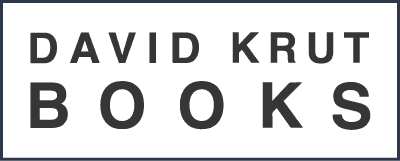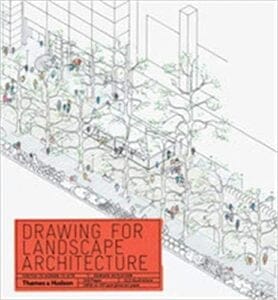Showing 1–16 of 33 results
-

R840The traditional, handcrafted textiles of Africa are sumptuous, intricate, and steeped in cultural significance. Region by region, African Textiles covers, as no other volume has, the handmade textiles of West, North, East, Central, and Southern Africa, outlining the range of weaving techniques, and the different types of looms, materials, and dyes that create these sumptuous works. Nor does it neglect the cultural context of African textiles, assessing the various influences of religion, culture, trade, tradition, fashion, and the changing role of women that inform their creation.
-

R500Great paintings cannot be fully understood in a single encounter; there is always more to be derived from them. Art lovers may revisit and reconsider the masterpieces throughout their lives, but a deeper understanding can only be gained by analysing the painting in detail, be it the placement of the subject, the lighting, the style of brushstrokes or the themes.
-

R550This wide-ranging exploration of different methods and media in art since the 1950s includes nine chapters that focus on individual processes of making: Painting, Woodworking, Building, Performing, Tooling Up, Cashing In, Fabricating, Digitizing, and Crowdsourcing. Detailed examples are interwoven with the discussion, including visuals that reveal the intricacies of techniques and materials. Artists featured include Ai Weiwei, Alice Aycock, Isa Genzken, Los Carpinteros, Paul Pfeiffer, Doris Salcedo, Santiago Sierra, and Rachel Whiteread.
-

R560An essential volume for landscape- and garden-design professionals, Drawing for Landscape Architecture argues for the importance of learning to “see by hand,” to visualize large-scale design plans and articulate them through drawing before turning to the digital tools that are so crucial to efficient and cost-effective building solutions. This enriched approach makes for better design, happier clients, and more successful projects.
-

R200Each of the thirty-two activity pages has a theme or suggestion such as “I’m the captain!” or “I’m Monster-ous!” with simple drawings such as fish or googly eyes that serve as a guide and suggestions on how children can make each illustration their own. Illustrated in color throughout
-

R250Amy Dempsey unravels the all-too-often daunting language of modern art by mapping the styles, schools and movements that help us understand modern and contemporary art, from Impressionism in the 19th century to Destination Art in the 21st.
-

R150Entertaining and lively texts by children’s author David Henry Wilson accompany the entries and explain anything and everything of interest: why hippo families like to wallow in mud, what noises baby giraffes make, and why you should always look at a zebra’s ears.
-

R650‘Nature/Structure. There is no more to say. In my pictures I reduce to that. But ‘reduce’ is the wrong word, because these are not simplifications. I can’t verbalize what I am working on: to me, it is many-layered by definition; it is what is more important, what is more true’ – Gerhard Richter
-
 Out of stock
Out of stock
R1210South Africa: the art of a nation explores the history of South Africa through a selection of its artworks, playing particular attention not only to their relationship to one another, but also to their connections to key episodes in the nation’s evolution.
-

R325Iconography, or the study of symbols―be they animals, artifacts, plants, geometric shapes, or gestures―is an essential aspect of interpreting art. One of the most consistent features of human society throughout time has been the use of visual symbols, which often act as substitutions for the written word, crossing dialects and borders and uniting understandings of the world through a shared language. Incorporating and analyzing a wealth of cultures, Symbols in Art serves as a reference guide to fifty of the most frequently occurring symbols in global art history from 2300 BCE to the present day, exploring their subtle implications and covert meanings.
-
 Out of stock
Out of stock
R495This sweeping overview of Rembrandt’s extraordinary achievement as a draughtsman fills a gap in the otherwise enormous literature on the artist. Beautifully illustrated, mostly in colour, the more than 150 drawings – culled from a corpus of some 800 – are discussed in detail.
-

R455This indispensable introductory guide explores the art of the African continent from its early origins over 150,000 years ago to the contemporary, set in the context of postcolonial debates, the restitution of cultural objects and artifacts, and the challenges of the present. This enormous and complex field of study, once under-appreciated by the Western art world, is now of global importance and an essential subject of education in art history.
-

R130The Lindisfarne Gospels is an eighth-century masterpiece of Celtic illumination. After careful study, Aidan Meehan has beautifully redrawn more than fifty designs that appear on its pages. Each one has been taken from its amazingly intricate background, often extricated from other entangled ornaments, and enlarged.
-

R1510This landmark publication accompanies an international touring exhibition devoted to Black figuration in painting from the 1920s to now, featuring artists from Africa and the African diaspora.
-

R500This pioneering book stands as the most comprehensive treatment of the lives, ideas, and art works of the remarkable group of women who were an essential part of the Surrealist movement. Leonora Carrington, Frida Kahlo, and Dorothea Tanning, among many others, embodied their age as they struggled toward artistic maturity and their own “liberation of the spirit” in the context of the Surrealist revolution.
-
 Out of stock
Out of stock
R250The World Press Photo Competition 2008 brings together some 200 images. The best pictorial journalism from an eventful year, this selection brings us face to face with contemporary world events—an impressive visual record of social, political, cultural, scientific, and, above all, human milestones. 200 illustrations, 150 in color.
















